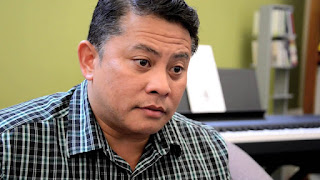Vocal Music
- And Still the Bread Is Broken – David Ashley White (b. 1944)
Instrumental Music
- O God, Thou Faithful God – Ethel Smyth (1858-1944)
- Jerusalem – Chris de Silva (21st Century)
- Carillon – Herbert Murrill (1909-1952)
Congregational Music (all hymns from The Hymnal 1982 with the exception of those marked “R” which are from Renew.)
- Hymn 8 - Morning is broken (BUNESSAN)
- Hymn 522 - Glorious things of thee are spoken (AUSTRIA)
- Hymn 368 - Holy Father, great Creator (REGENT SQUARE)
- Hymn 295 - Sing praise to our Creator (CHRISTUS, DER IST MEIN LEBEN)
- Hymn 304 - I come with joy to meet my Lord (LAND OF REST)
- Hymn 493 - O for a thousand tongues to sing (AZMON)
- Hymn 114 - Psalm 103:1-8, Jacques Berthier
O God, thou Faithful God
These two short chorale preludes for organ are written by Dame Ethel Smyth, one of the most significant English composers of her era. She wrote six operas, a Mass in D for chorus and orchestra, orchestral, choral, chamber and solo music.
Born into a middle-class London family, she was introduced to classical music by a governess who had studied at the Leipzig Conservatory. This sealed her fate, and she too went to Leipzig to study music. She met and worked with some of the greatest musicians of the time, including Clara Schumann, Peter Tchailkovsky, Edvard Gried, Anton Dvorak, Gustav Mahler, and Johannes Brahms. Brahms refused to believe she actually wrote the music she shared with him because he didn't believe a woman could write music that was this good.
In her collection Short Chorale Preludes, Smyth melds the compositional styles of both Bach and Brahms. She set the chorale O GOTT DU FROMMER GOTT twice. The first setting uses an imitative four-note motif as part of the the accompaniment in the three lower voices, while the melody appears unadorned in the top voice. As the hymn itself is in AAB form (do you remember last week's discussion of form in hymns?), measures five through eight are an exact repeat of the first four bars, only played on a different keyboard.
The second setting is in 12/8 time, as opposed to the common 4/4 time of the first prelude. In the second setting Smyth did NOT repeat the opening line of the melody as she did in the first chorale prelude, because the melody is repeated in a canon at the octave between the upper voice and the pedal.
Jerusalem
The piano piece during the eucharist is a setting of the tune LAND OF REST. This tune is used several times in our hymnal, most notably for the text which we will sing immediately following the piano prelude. The title Jerusalem probably comes from the other text found in our hymnal, Jerusalem, my happy home.
Chris de Silva is a composer, arranger and church musician. He is is originally from Singapore and currently lives in Los Angeles, California. He
has served as Director of Liturgy and Music at several churches in the Archdiocese of Los Angeles, and currently serves on the campus ministry team at Loyola Marymount University as Associate Director of Music.
Chris is a graduate of the University of Southern California Thornton School of Music where he studied Music Composition and Film Scoring. He also holds an M.A. in Pastoral Theology from Loyola Marymount University, Los Angeles. Chris is currently pursuing a Doctor of Ministry Degree at Candler School of Theology, Emory University.










